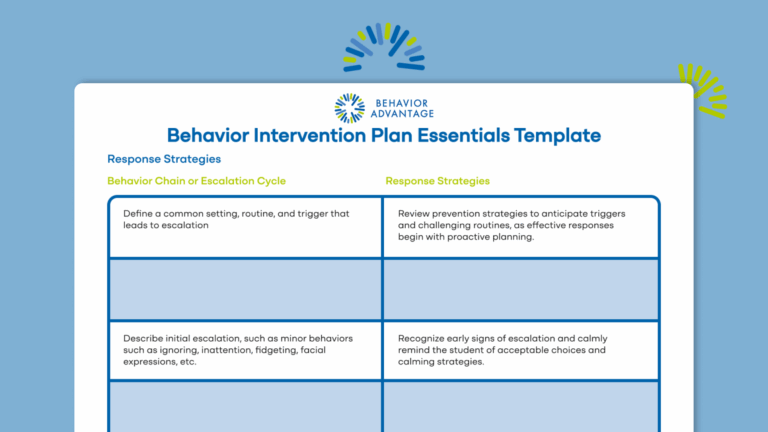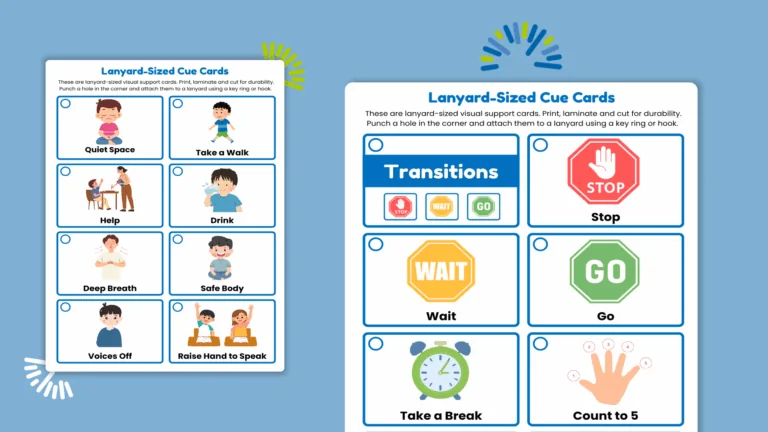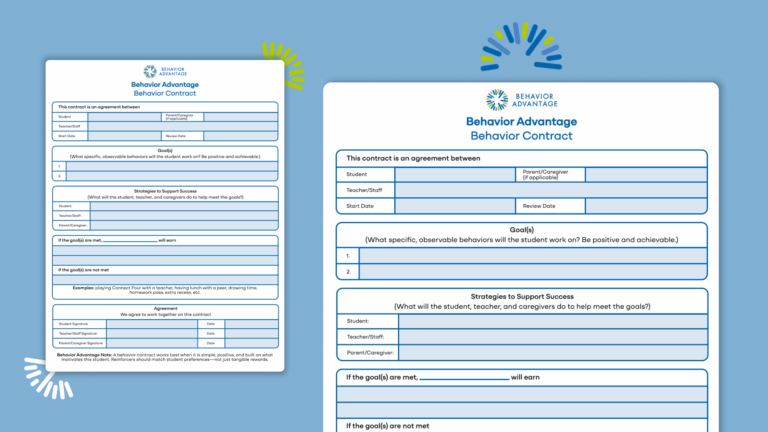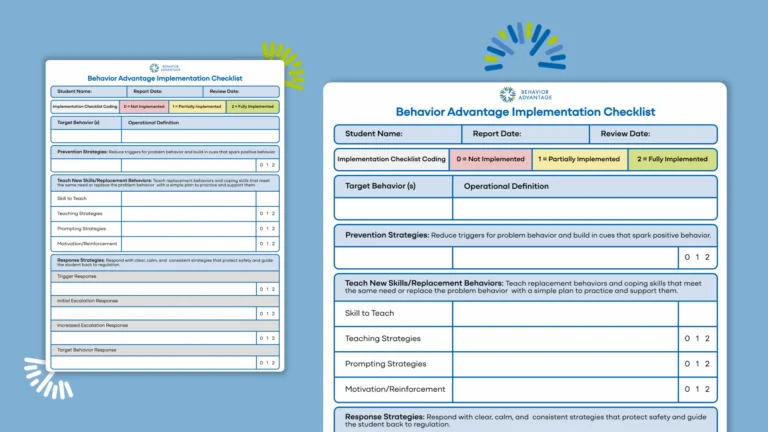Looking for a simple way to track student behavior? Our free Sample Behavior Tracking Form helps you consistently collect both frequency (how often) and duration (how long) data. It’s designed to provide valuable insights that help your team make confident, data-driven decisions.
- Identify the target behaviors to increase and decrease.
- Track both the frequency and duration of key behaviors.
- Review data regularly to identify trends and progress.






